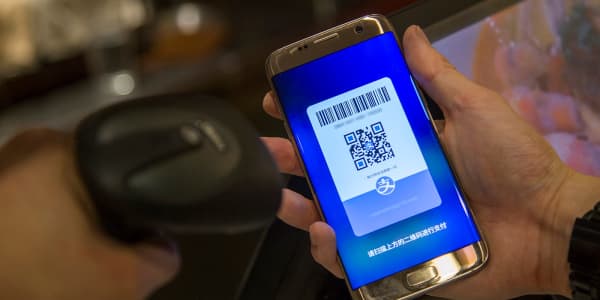Ride-hailing start-up Go-Jek has acquired three financial technology (fintech) start-ups as it looks to dominate Indonesia's digital payments space.
Go-Jek said Friday it had bought offline payments service Kartuku, payment gateway Midtrans and saving and lending firm Mapan for undisclosed amounts.
The firm, which began life as a motorbike and taxi business, has expanded its offering to include food delivery and payments. Go-Jek said the acquisition would be a vital component in its aim to lead Indonesia's payments sector.
"Through the acquisitions announced today, we will be working hand-in-hand with three likeminded companies who share our vision and ethos," Nadiem Makarim, founder and chief executive of Go-Jek, said in a statement. "This marks a significant development in our position at the heart of Indonesia's vibrant fintech industry."
Go-Jek said the acquisition move would bolster its activity in both online and offline payments, as well as increase engagement in the financial services in Indonesia. Go-Jek's mobile payments service Go-Pay is one of the most popular payment platforms in Indonesia.
"The acquisitions will immediately accelerate the acceptance and market leadership of Go-Pay in the offline space through Kartuku, as well as the online space through Midtrans, while also increasing financial inclusion for the unbanked through Mapan," Andre Soelistyo, president at Go-Jek, said.
"This approach to finance, implemented by leading homegrown Indonesian technology businesses within Go-Jek Group, will accelerate financial inclusion for millions of Indonesians and stimulate economic productivity throughout the country."
Financial inclusion refers to fintech solutions that provide more affordable finance alternatives to disadvantage and low-income people. According to World Bank data, an estimated 2 billion adults have no access to formal financial services.
In September, Go-Jek's Soelistyo told CNBC that the company wanted to imitate the successes of Alibaba and Tencent in China with its digital payments offering.
Go-Jek is not the only taxi-hailing service to make aggressive moves into payments. Both Uber and Singapore's Grab have made their own ventures into the industry with payment services.
In October, Uber teamed up with Barclays to launch its own Visa credit card in the U.S., which allows users to pay for their rides, receive cashback on spending and an annual $50 credit for digital subscription services like Netflix. Grab, meanwhile, has its mobile wallet, GrabPay, which lets users pay for goods and services in shops and restaurants in Singapore.






